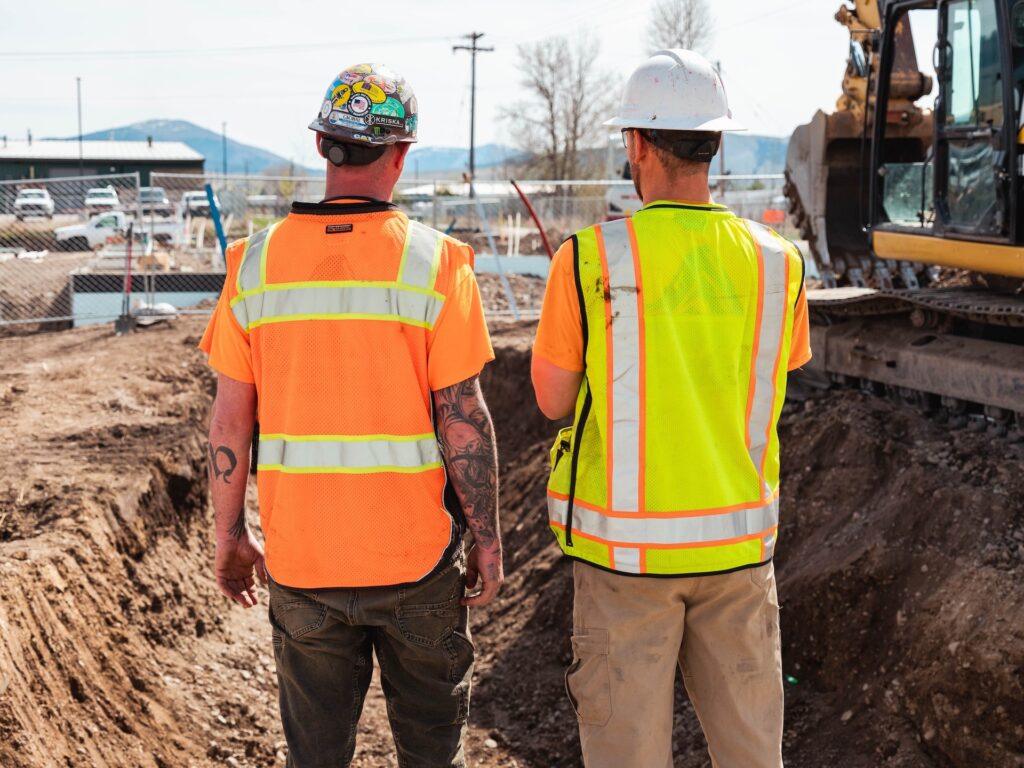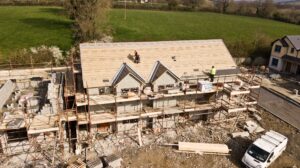
Resident Engineers in Construction and Permit Expediting
Modern construction projects require coordination among experienced and knowledgeable professionals, including general contractors, subcontractors, and architects. Resident engineers also play a pivotal role in ensuring the project is completed without issue or delay.
In decades past, resident engineers oversaw broad aspects of projects, meaning they were less involved with the finer details. However, contemporary construction is far more dynamic, requiring resident engineers to handle specialized tasks crucial for the project’s success.
A resident engineer can participate in mechanical, electrical, civil, and structural engineering tasks. They can also assist in making sure that building permit applications are approved on time. You’ll likely need multiple building permits when you construct or renovate a home. The usual permitting process can take anywhere from two weeks to 12 months, depending on the project’s complexity.

While building permits can be approved efficiently, the permitting process must be completed on time. If the city believes your plans must meet local building codes, you may be required to make significant changes, which means weeks of delays.
However, you can shorten this process by obtaining permit expediting services. With a professional license expediter by your side, you can quickly reduce the number of delays and receive your building permits. This guide explores resident engineers’ construction role and involvement with the permit expediting process.
Responsibilities of Resident Engineers
Resident engineers are responsible for managing project timelines, staffing, and budgets. They must also provide supervision and quality assurance for all types of construction projects. During construction, resident engineers ensure that all completed work adheres to the existing building plans and specifications necessary to meet permit requirements.
Resident engineers usually coordinate with the general contractor managing the entire project. They’ll calculate total project costs, negotiate change orders, and set budgets.
These professionals are also tasked with evaluating the environmental effects that installations and projects might have on the land and the surrounding areas. If a delay occurs, the resident engineer must explain it to the project manager.

Project Oversight
A resident engineer is responsible for ensuring that the project adheres to all schedule, budget, and quality constraints detailed in the contract and creating and maintaining project engineering records.
Resident engineers monitor the project’s progress and provide weekly reports to ensure accuracy. They also implement comprehensive quality control procedures to ensure the construction crew properly follows the building plans.
Communication and Reporting
Resident engineers act as the bridge between contractors, clients, project engineers, and permit expediters. They inform these parties of the progress that’s being made. To ensure accuracy, they maintain exhaustive records about certificates, instructions, and all other aspects of the contract.
Supervision and Management
Resident engineers work alongside the general contractor to oversee the ongoing performance of subcontractors. They are responsible for managing site engineers with less experience, ensuring that all construction activities align with industry standards, building plans, and specifications.
Quality Assurance
This professional must handle all facets of quality assurance in a construction project. For example, they must verify that the materials shipped to the construction site meet quality standards and specifications. They’ll also maintain progress reports, back-charge procedures, and records of these matters.
Safety and Hazard Management
Resident engineers assess and eliminate any construction site hazards that might arise during standard work activities. By implementing hazard management, these engineers maintain a safe construction environment. Resident engineers regularly inspect construction sites to ensure the project remains on track.
Delegated Responsibilities
These engineers can also delegate some of their responsibilities depending on the project’s needs. For example, they might request that other professionals handle specific contract clauses with the project.
Qualifications of Resident Engineers
If you’re considering starting a career as a resident engineer, you must meet numerous qualifications, including obtaining the proper license and getting enough experience.
Educational Background
Before you can work as a resident engineer, you must complete an undergraduate program that an accredited college or university provides. Candidates typically need a mechanical, structural, or civil engineering bachelor’s degree. Most bachelor’s programs can be completed in four years, after which you should have the skills and knowledge you need to start this career. During the program, you’ll likely learn about topics like:
- Computer-aided design
- Soil mechanics
- Surveying
- Mapping
- Construction management
- Environmental science
After you complete your initial education, consider pursuing a master’s degree to bolster your career and enhance your resume. Some employers require candidates to hold a master’s degree in an engineering specialization. For example, if a city government is considering creating a new railway system, it may look to hire someone with a degree in civil engineering and a major in transportation. Remember that master’s degree programs can be completed in one to two years.

Professional Experience
Before you can work as a resident engineer, you’ll need to obtain a professional engineering (PE) license, which requires you to work four years as an engineer-in-training (EIT). During your training, you may receive supervision from a more experienced engineer.
Once you receive a professional engineering license, you can offer your services publicly. After you gain the necessary EIT experience, you can work independently.
When a landowner or company hires for construction projects, they’ll require all candidates to have considerable experience. Some employers require applicants also to have some experience with project management. You can gain this experience by taking part in an apprenticeship or internship. During an apprenticeship, you’ll work at least 30 hours each week. You’ll also receive formal classroom education.
Because of the complexities of modern projects, employers usually require 15 years of experience in construction site work. You may need an additional two years of experience as a design engineer. By meeting these requirements, you’ll have the expertise and knowledge required to meet all your responsibilities.
Contractual Familiarity
Resident engineers need to be well-versed in different types of contract formats. If the resident engineer misses a stipulation in the contract, the entire document could be rendered null and void. Having the right amount of contractual knowledge allows resident engineers to manage complex agreements and ensure that the whole crew complies with the contract.
Specialized Knowledge
Resident engineers also have comprehensive experience and knowledge in quality control for different aspects of the construction process, including concrete pavement and DBST sealing. They can supervise the construction of water-crossing structures and concrete bridges. Understanding how various construction projects work can expand their job opportunities.
Transferable Skills
Resident engineers must also demonstrate how to transfer their knowledge to staff and co-workers effectively. They may need to mentor, support, and guide the rest of their supervision team and the contractor staff.
Physical Aptitude
Working as a resident engineer is physically demanding. If you land this job, you’ll work in environments where you must perform on-site project supervision and inspections.
The Role of Resident Engineers in Permit Expediting
Resident engineers are responsible for handling several aspects of the permit expediting process. When a permit expediter is hired to assist with a construction project, they’ll use their knowledge of permitting requirements to ensure everything is in order.
Before you submit a permit application and building plans, they’ll review these documents to identify and correct any mistakes that might cause delays. By hiring a permit expediter, you should be able to avoid costly delays.

Resident engineers facilitate permit expediting by reviewing the building plans and ensuring the construction crew follows them. After a building permit is approved, the city will perform several inspections throughout the construction process to ensure it meets the permit requirements.
By continuously monitoring the project, resident engineers ensure the inspections will succeed. They’ll also coordinate with permit authorities and stakeholders to keep everyone on the same page. When resident engineers perform efficient permit expediting practices, they can mitigate delays and keep the project on schedule.
Conclusion
Resident engineers play an indispensable role in construction projects. They oversee the subcontractors, make sure the construction process is handled according to specifications, and inform stakeholders of potential delays.
A symbiotic relationship between resident engineers and permit expediting is necessary for project success. If you’re managing a construction project about to get off the ground, you must recognize and value the contributions that resident engineers make to the industry.

Jason Somers, President & Founder of Crest Real Estate
With over 15 years of professional experience in the Los Angeles luxury real estate market, Jason Somers has the background, judgement and track record to provide an unparalleled level of real estate services. His widespread knowledge helps clients identify and acquire income producing properties and value-ad development opportunities.
Learn more about Jason Somers or contact us.



